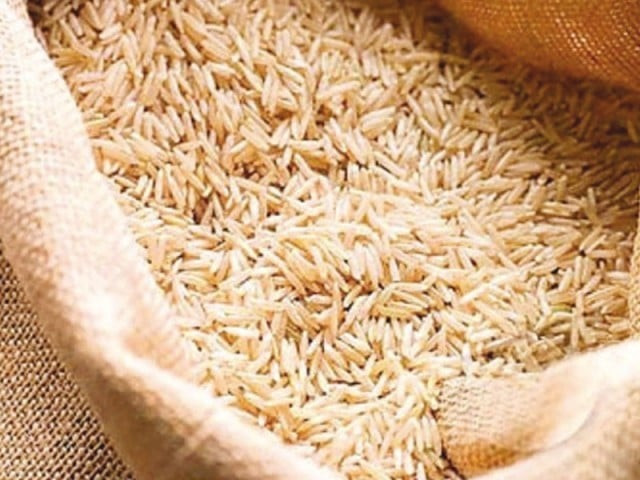Rice exporters follow bandwagon, present demands to PM
Seek inclusion of commodity in GSP Plus status, reduction in tax rates

Rice exports have increased over the last 10-12 years. PHOTO: FILE
The delegation of REAP, led by its chairman Rafique Sulaiman, had a meeting with Prime Minister Nawaz Sharif in Islamabad and presented demands for addressing issues being faced by the rice industry.
They noted that rice exports have great potential and is the only sector which has shown outstanding performance during a very short span of 10-12 years, during which exports have grown from $300 million to a staggering $2 billion.
The first demand of REAP representatives was the extension of payback period for all State Bank-based export refinance loans including FE-25 based loans from 180 days to 360 days. Additionally, it was asked for any penalties incurred to be waived.
The second demand is to reduce withholding tax on rice to 0.25% from current one percent and withdrawal of 3.5% withholding tax on local purchase of rice.
Another call was to give the status of industry to the rice milling plants and concessions to be extended as the textile industry, including reduced load-shedding of electricity and zero rating of General Sales Tax.
It was also demanded that Trading Corporation of Pakistan and Pakistan Agricultural Storage and Services Corporation (Passco) would not intervene in rice trade, as in 2008 when the latter purchased rice.
REAP also demanded to privatise both rice research institutes (RRIs) at Kala Shah Kaku and Dokri. In case they are not privatised, the government must facilitate REAP for its own RRI.
The delegation also sought protection of the export trade of Basmati rice by focusing on markets of Iran and Saudi Arabia, the largest importers of Basmati rice. To protect the export trade of non-basmati rice, government must focus on the markets of China, the Philippines and Indonesia, they mentioned. REAP representatives also sought GSP Plus status for the rice sector, as was the case for textiles.
They also suggested controlling falling prices of rice by giving direct subsidy to farmers or to subsidise exports, so Pakistani rice can be exported at competitive rates. Finally, they also demanded the Rice Research Institute should work on the project to minimise the input cost and increase the yield and quality of Pakistani rice, so that the cost of paddy is reduced.
“The Prime Minister told us to hold another meeting to discuss the proposals presented by the business community of different sectors,” Sulaiman said.
Published in The Express Tribune, September 13th, 2015.
Like Business on Facebook, follow @TribuneBiz on Twitter to stay informed and join in the conversation.



















COMMENTS
Comments are moderated and generally will be posted if they are on-topic and not abusive.
For more information, please see our Comments FAQ